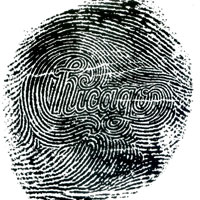Chicago XIV
| Chicago XIV | ||||
|---|---|---|---|---|
 |
||||
| Studio album by Chicago | ||||
| Released | July 21, 1980 | |||
| Recorded | March–May 1980 at The Record Plant, Los Angeles and Criteria Studios, Miami | |||
| Genre | Rock | |||
| Length | 38:58 | |||
| Label | Columbia | |||
| Producer | Tom Dowd | |||
| Chicago chronology | ||||
|
||||
| Professional ratings | |
|---|---|
| Review scores | |
| Source | Rating |
| Allmusic | |
Chicago XIV is the twelfth studio album by the American band Chicago, released in 1980. Recorded at a time of waning interest in the band, Chicago XIV remains one of Chicago's poorest selling albums and was a commercial flop. It is also notable for being their last studio album with Columbia Records, and the last one to feature percussionist Laudir de Oliveira.
After the commercial and critical disappointment of Chicago 13, and the departure of guitarist Donnie Dacus, Chicago decided that a new strategy was in order. Instead of incorporating another guitarist into the band, they hired on Chris Pinnick as a session player and live performer. They also tried a new producer, this time Tom Dowd, who had worked with Aretha Franklin, Cream, Eric Clapton, and Toto. With Dowd taking the reins, and with Chicago abandoning the ill-advised dance club atmosphere that permeated the last album, the band recorded a lean, more streamlined record which would, predictably, be called Chicago XIV. Possibly designed as a response to the under-produced, new wave efforts on the radio at the time, the album was easily the band's least orchestrated effort to date. Still, it wasn't a perfect marriage, with Dowd having to shepherd a group whose members were not all on the same wavelength or headspace.
With Peter Cetera taking an even greater role in the band, his compositions included a mix of ballads, pop and rock songs. Robert Lamm turned in the rockers "Manipulation" and "I'd Rather Be Rich" (a song from 1975); James Pankow delivered the uptempo – if downbeat – "The American Dream"; and Lamm, Cetera and Danny Seraphine co-wrote "Thunder and Lightning". Like Chicago 13 before it, Chicago XIV did not improve Chicago's fortunes. To the record-buying public, Chicago's image was out of touch in 1980 and once the new album was released, it became clear that any attempt to win new fans would be in vain.
...
Wikipedia
